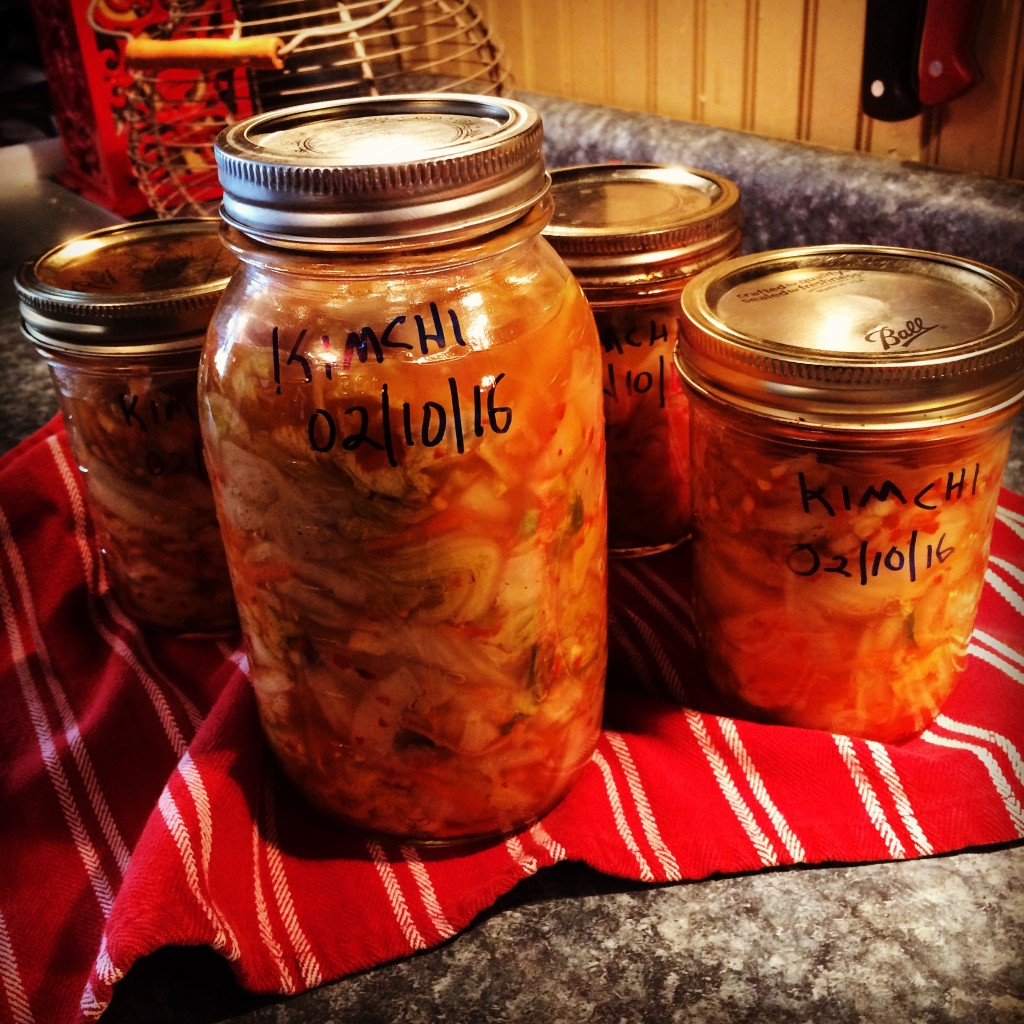 Homemade Kimchi
Homemade Kimchi
Last summer we had the good fortune to visit relatives living in Japan. For ten days, we toured Tokyo and Kyoto together. We visited countless temples, restaurants. Saw amazing sites and ate some of the most amazing cuisine I’ve ever tasted! There are many reasons that Japanese live extraordinarily long healthy lives, not the least of which is the food they eat: Traditional Japanese meals heavy on the vegetables and are naturally gluten and dairy free. Another thing we noticed was a variety of fermented foods are usually present at EVERY meal, especially breakfast.
This ancient tradition seems likely to have come about as a means of preserving the harvest, but as many in modern times are beginning to realize, the bacterial cultures present in fermented foods have many benefits in terms of digestion, immune system health, detoxification and even increased mental clarity.
As soon as we got home, we began incorporating more fermented food into our diets – store-bought saurkraut, kimchi and pickled radishes.
A few months after we got home, we bought our first crock and began fermenting things for ourselves. Kimchi is my favorite because it’s spicy, but a nice bit of saurkraut is great as a side dish or in a sandwich as well. I like that we can know where things came from, how they were handled and get to participate in this ancient, wise tradition from my heritage.
Traditional Korean kimchi can contain seafood or meat as well, but we decided to keep it simple. This batch is mostly napa cabbage mixed with some carrots, green onions, garlic and hot peppers allowed to ferment under a brine. Since the vegetables are kept completely covered with brine, not in contact with air, the usual mold and other bacteria that can appear on foods is not able to survive the saltiness and lack of oxygen of the brine, allowing lacto-fermentation to commence, which produces that healthy gut-flora bacteria we all need more of in our diets. (something the yogurt industry is trying to leverage as well, but be careful not to eat yogurt which has sugar added – it counteracts the health benefits of the lactobacillus bacteria by promoting unhealthy bacteria in your system instead!)
Now that our crock is empty again, my thoughts are turning to red onions. Who doesn’t love a nice dollop of pickled onions on their burger?